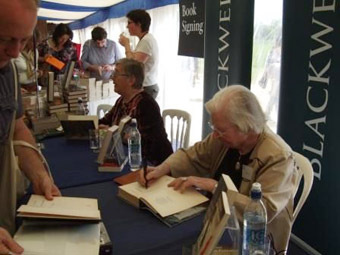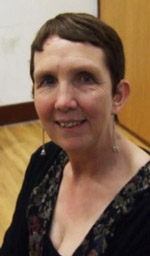March 29, 2011
The Daffodils are out and you're wandering lonely as a cloud down Cornmarket now the students have gone to eat chocolate eggs elsewhere: it must be time for Oxford Literary Festival. This year the extravaganza runs from Sat 2nd to Sun 10th April. For that brief period, Christ Church College is transformed - as if by Harry Potter himself - with marquees springing up all over and erudite gatherings in the most unlikely places.
There'll be people rushing from one event to another, perusing the books or just soaking up literary genius (and possibly finishing their own literary works) - and some whisky - in the cafe. This year there are 500+ speakers, covering all sorts of different topics - some serious, some deeply comical - aimed at everyone from the age of 5 upwards.
Daily Info is sending a bevy of reporters, to catch some highlights of the festival. Their reviews appear below as fast as we can get them there. Want to add your own opinion? Please do, via the 'Submit Review' form, below right. Were you at an event covered here? Did you agree/disagree with an opinion on this page? Want to start a debate? Lend your voice to the cloud of words and ideas.
For full programme details and last minute changes - plus Podcasts - see the Literary Festival Website. Happy reading!
There'll be people rushing from one event to another, perusing the books or just soaking up literary genius (and possibly finishing their own literary works) - and some whisky - in the cafe. This year there are 500+ speakers, covering all sorts of different topics - some serious, some deeply comical - aimed at everyone from the age of 5 upwards.
Daily Info is sending a bevy of reporters, to catch some highlights of the festival. Their reviews appear below as fast as we can get them there. Want to add your own opinion? Please do, via the 'Submit Review' form, below right. Were you at an event covered here? Did you agree/disagree with an opinion on this page? Want to start a debate? Lend your voice to the cloud of words and ideas.
For full programme details and last minute changes - plus Podcasts - see the Literary Festival Website. Happy reading!





